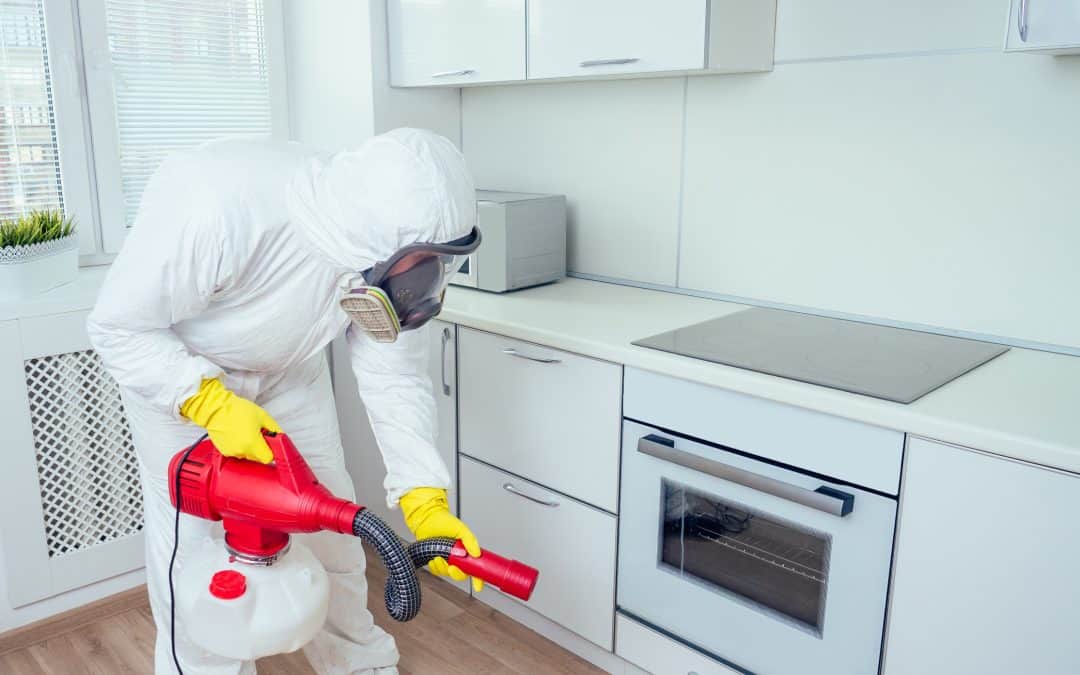Dealing with pests in your home is not just annoying; it can also be a health hazard. Knowing how to avoid common pests is crucial for maintaining a clean and safe living environment. Pests like ants, cockroaches, rodents, and termites can quickly turn your home into an unpleasant place. Luckily, by understanding how to avoid common pests at home, what attracts them and how to keep them out, you can prevent infestations and enjoy a pest-free home.
Identifying the Most Common Pests
Before diving into prevention strategies, it’s important to know which pests are most likely to invade your home. Some of the most common household pests include:
- Ants: These tiny insects are always on the lookout for food and water. They can enter through the smallest cracks and once inside, they multiply rapidly.
- Cockroaches: Known for being resilient, cockroaches can survive in almost any environment. They thrive in warm, moist areas and are often found in kitchens and bathrooms.
- Rodents (Mice and Rats): Rodents are not only a nuisance but also a health risk, as they can spread diseases through their droppings and urine. They typically invade homes in search of food and shelter, especially during colder months.
- Termites: Termites can cause significant damage to your home by feeding on wood. They are often difficult to detect until the damage is already done, making them one of the most destructive pests.
- Spiders: While most spiders are harmless, some species can be dangerous. They often enter homes in search of insects to prey on and can be found in dark, undisturbed areas.
How to Avoid Common Pests
Now that you’re familiar with the most common pests, let’s discuss how to avoid common pests at home. Keeping pests out of your home requires a combination of good hygiene practices, regular maintenance, and a proactive approach to sealing potential entry points.
1. Maintain a Clean Home
One of the most effective ways to prevent pests is by keeping your home clean. Pests are attracted to food, water, and shelter, so eliminating these resources can discourage them from entering.
- Kitchen Cleanliness: Wipe down countertops, sweep floors, and clean up spills immediately. Store food in airtight containers and avoid leaving dirty dishes in the sink overnight.
- Garbage Disposal: Dispose of garbage regularly and use trash cans with tight-fitting lids. Rinse out recyclable containers before placing them in bins.
- Bathroom Hygiene: Keep bathrooms dry and free of standing water. Fix leaky faucets and regularly clean drains to prevent pests from being drawn to moisture.
2. Seal Entry Points
Pests can enter your home through even the tiniest cracks and gaps. To prevent them from getting inside, it’s important to seal these entry points.
- Windows and Doors: Install weather stripping around doors and windows and use caulk to seal any gaps. Make sure window screens are intact and free of holes.
- Walls and Foundation: Inspect your home’s exterior for cracks or gaps in the foundation, walls, and siding. Seal any openings with caulk or expanding foam.
- Utility Openings: Check around pipes, cables, and vents for any gaps and seal them with appropriate materials.
3. Regular Maintenance
Keeping your home in good repair is key to preventing pests. Regular maintenance tasks can help identify potential problems before they become infestations.
- Roof and Gutters: Clean gutters regularly to prevent water buildup, which can attract pests. Inspect the roof for damaged shingles or gaps where pests could enter.
- Yard Maintenance: Keep your yard well-maintained by trimming bushes, mowing the lawn, and removing debris. Overgrown vegetation and clutter can provide shelter for pests.
- Inspect and Repair Screens: Regularly inspect window and door screens for holes and tears. Replace or repair them as needed to keep pests out.
Benefits of a Pest-Free Home
Living in a pest-free home offers numerous benefits, both in terms of comfort and health. Here’s why it’s worth the effort to keep pests at bay:
1. Improved Health
Pests can carry diseases, bacteria, and allergens that pose health risks to you and your family. For example, cockroaches can trigger asthma and allergies, while rodents can spread diseases like hantavirus and salmonella. By preventing pests from entering your home, you reduce the risk of illness.
2. Protect Your Property
Pests like termites and rodents can cause significant damage to your home’s structure and belongings. Termites, for instance, feed on wood and can weaken the integrity of your home over time. By taking preventive measures, you protect your property from costly repairs.
3. Peace of Mind
A pest-free home is a more comfortable and enjoyable place to live. Knowing that you’ve taken steps to keep pests out gives you peace of mind, allowing you to relax and enjoy your living space without the worry of unwanted visitors.
Final words about how to avoid common pests at home
Preventing pest infestations is all about being proactive. By maintaining a clean home, sealing entry points, and keeping up with regular maintenance, you can avoid common pests and enjoy the benefits of a pest-free environment. The effort you put into prevention will pay off in the long run, saving you time, money, and stress. So, take action today to protect your home and your family from the nuisance and dangers of pests.
